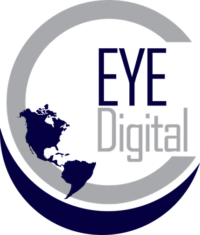Introduction:
In today’s digitally driven world, advertising is paramount for businesses, and the healthcare sector is no exception. With the advent of online advertising, healthcare providers are presented with a multitude of options to reach their target audience. Two of the most prominent platforms for advertising are Facebook and Google Ads. In this blog post, we’ll delve into the comparison between Facebook Advertising and Google Ads in the healthcare sector, helping you make an informed decision for your marketing strategy.
Audience Targeting:
Facebook Advertising:
Facebook offers powerful tools for audience targeting. You can hone in on demographics, interests, behaviors, and even medical conditions. In the healthcare sector, this level of precision can be invaluable. You can target specific age groups, locations, and even individuals with a particular medical condition. For example, a dental clinic can reach out to people in their area who’ve expressed an interest in oral health.
Google Ads:
Google Ads primarily rely on keyword targeting. While this can be effective, it might not be as precise as Facebook when it comes to healthcare. However, Google’s Search Ads can capture users actively searching for health-related information or services. For instance, if someone searches for “pediatric dentist near me,” a pediatric dental clinic can place their ad directly in front of this potential patient.
Ad Format:
Facebook Advertising:
Facebook offers a variety of ad formats, including image ads, video ads, and carousel ads. These visually appealing formats can be highly engaging, making them suitable for sharing educational content, patient testimonials, and awareness campaigns. Additionally, Facebook has a robust retargeting system, allowing you to reconnect with users who have previously engaged with your healthcare content.
Google Ads:
Google Ads provides text-based search ads, display ads, and video ads on YouTube. While these formats are effective, they are generally more informative and transactional. They are ideal for users actively looking for healthcare services, but may not be as engaging for building brand awareness or educating patients.
Compliance and Regulations:
Facebook Advertising:
The healthcare sector is heavily regulated, and advertising on Facebook requires strict adherence to their policies. While this can be a challenge, it ensures a level of safety and transparency for patients. Medical facilities must carefully craft ad content to comply with these rules.
Google Ads:
Google also has advertising policies that healthcare providers must adhere to. This includes regulations regarding pharmaceuticals, medical devices, and health information. Compliance with these policies is vital to maintain a positive online presence.
Cost and ROI:
Both Facebook Advertising and Google Ads operate on a bidding system. The cost per click (CPC) can vary based on the competition in your niche and location. Facebook tends to be more cost-effective for brand awareness campaigns, while Google Ads can be more expensive but highly effective for capturing users actively searching for healthcare services.
Conclusion:
In the healthcare sector, the choice between Facebook Advertising and Google Ads largely depends on your specific goals and target audience. Facebook is excellent for building brand awareness and reaching a precise, segmented audience, while Google Ads excels in capturing users actively seeking healthcare services.
To maximize your digital marketing strategy, consider using both platforms strategically. Use Facebook to build your brand and educate your audience while using Google Ads to capture patients actively searching for healthcare services. By combining the strengths of these platforms, you can create a well-rounded healthcare marketing strategy that’s both effective and compliant with industry regulations.
Remember, staying updated on the latest policies and trends in the healthcare advertising sector is essential for long-term success in this ever-evolving digital landscape.

